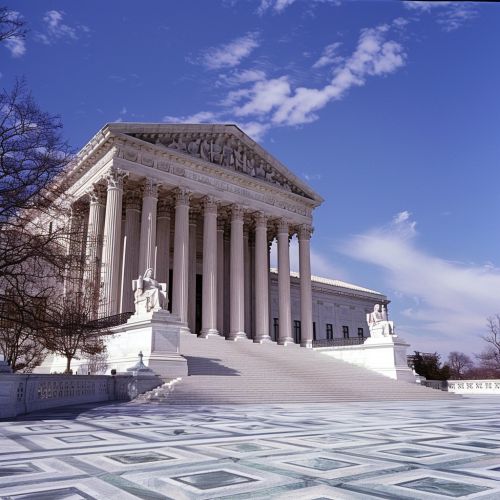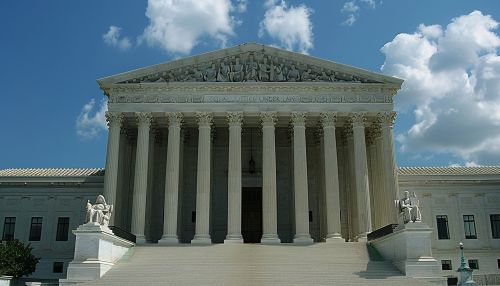Bostock v. Clayton County
Background
Bostock v. Clayton County is a landmark case decided by the Supreme Court of the United States on June 15, 2020. The case centers around the interpretation of Title VII of the Civil Rights Act of 1964, specifically whether its prohibition of discrimination "because of sex" includes discrimination based on an individual's sexual orientation or gender identity.
Case History
The case originated when Gerald Bostock, a child welfare services coordinator for Clayton County, Georgia, was terminated from his position after he participated in a gay recreational softball league. Bostock filed a lawsuit alleging that his termination violated Title VII of the Civil Rights Act, which prohibits employment discrimination based on race, color, religion, sex, and national origin. The district court dismissed his case, and the Eleventh Circuit Court of Appeals affirmed the dismissal, holding that Title VII does not cover sexual orientation discrimination.
Legal Issues
The primary legal question in Bostock v. Clayton County was whether discrimination based on sexual orientation or gender identity falls under the prohibition of discrimination "because of sex" in Title VII. The case was consolidated with two other cases, Altitude Express Inc. v. Zarda and R.G. & G.R. Harris Funeral Homes Inc. v. Equal Employment Opportunity Commission, which raised similar issues regarding sexual orientation and gender identity discrimination.
Supreme Court Decision
The Supreme Court, in a 6-3 decision, ruled that Title VII's prohibition on discrimination "because of sex" does indeed cover discrimination based on sexual orientation and gender identity. Justice Neil Gorsuch authored the majority opinion, joined by Chief Justice John Roberts and the four liberal justices. The majority opinion emphasized that discrimination based on sexual orientation or gender identity inherently involves treating individuals differently because of their sex, thus falling within the scope of Title VII.
Majority Opinion
Justice Gorsuch's majority opinion relied heavily on the textualist approach to statutory interpretation. He argued that the plain meaning of the phrase "because of sex" in Title VII necessarily includes sexual orientation and gender identity. The opinion stated that an employer who fires an individual for being homosexual or transgender necessarily discriminates against that individual for traits or actions it would not have questioned in members of a different sex.
Dissenting Opinions
Justice Samuel Alito, joined by Justice Clarence Thomas, authored one dissenting opinion, arguing that the majority's interpretation of Title VII was not consistent with the original public meaning of the statute when it was enacted in 1964. Justice Brett Kavanaugh wrote a separate dissent, contending that while he agreed that discrimination based on sexual orientation or gender identity is wrong, the appropriate avenue for addressing such discrimination was through legislation, not judicial interpretation.
Impact and Significance
The decision in Bostock v. Clayton County has had a profound impact on employment law in the United States, extending protections against discrimination to millions of LGBTQ+ individuals. The ruling has also influenced other areas of law and policy, prompting changes in how federal agencies interpret and enforce anti-discrimination statutes.


Legal Analysis
The Bostock decision is a significant example of the application of textualism in statutory interpretation. Textualism focuses on the ordinary meaning of the statutory text at the time of its enactment, rather than the intent of the legislators or the consequences of the interpretation. Justice Gorsuch's opinion in Bostock illustrates how textualism can lead to expansive interpretations of statutory language, extending protections in ways that may not have been anticipated by the drafters.
Textualism and Its Application
Textualism, as applied in Bostock, involves a close reading of the statutory text and an analysis of its ordinary meaning. The majority opinion emphasized that the phrase "because of sex" in Title VII is broad and encompasses any form of discrimination where sex is a but-for cause. This approach contrasts with purposivism, which would focus on the broader purpose and legislative history of the statute.
Implications for Future Cases
The Bostock decision sets a precedent for interpreting other anti-discrimination statutes with similar language. Future cases involving discrimination on the basis of sexual orientation or gender identity may rely on the reasoning in Bostock to argue for broader protections under federal law. Additionally, the decision may influence how courts interpret other statutes that prohibit discrimination "because of sex," such as the Fair Housing Act and the Equal Credit Opportunity Act.
Broader Social and Legal Context
The Bostock decision is part of a broader trend towards recognizing and protecting the rights of LGBTQ+ individuals in the United States. This trend includes other significant legal developments, such as the legalization of same-sex marriage in Obergefell v. Hodges and the extension of healthcare protections to transgender individuals under the Affordable Care Act.
Intersection with Other Civil Rights Movements
The decision in Bostock intersects with other civil rights movements, highlighting the interconnected nature of various forms of discrimination. The recognition of sexual orientation and gender identity as protected categories under Title VII reflects a growing understanding of the ways in which different forms of discrimination can overlap and compound.
Legislative and Policy Responses
In response to the Bostock decision, some states and localities have enacted or strengthened their own anti-discrimination laws to ensure comprehensive protections for LGBTQ+ individuals. Additionally, federal agencies have updated their policies and enforcement practices to align with the Supreme Court's interpretation of Title VII.
Conclusion
Bostock v. Clayton County is a landmark case that has significantly expanded the scope of protections against employment discrimination in the United States. The Supreme Court's decision underscores the importance of textualism in statutory interpretation and has far-reaching implications for the rights of LGBTQ+ individuals. As society continues to evolve, the principles established in Bostock will likely influence future legal and policy developments in the realm of civil rights.
